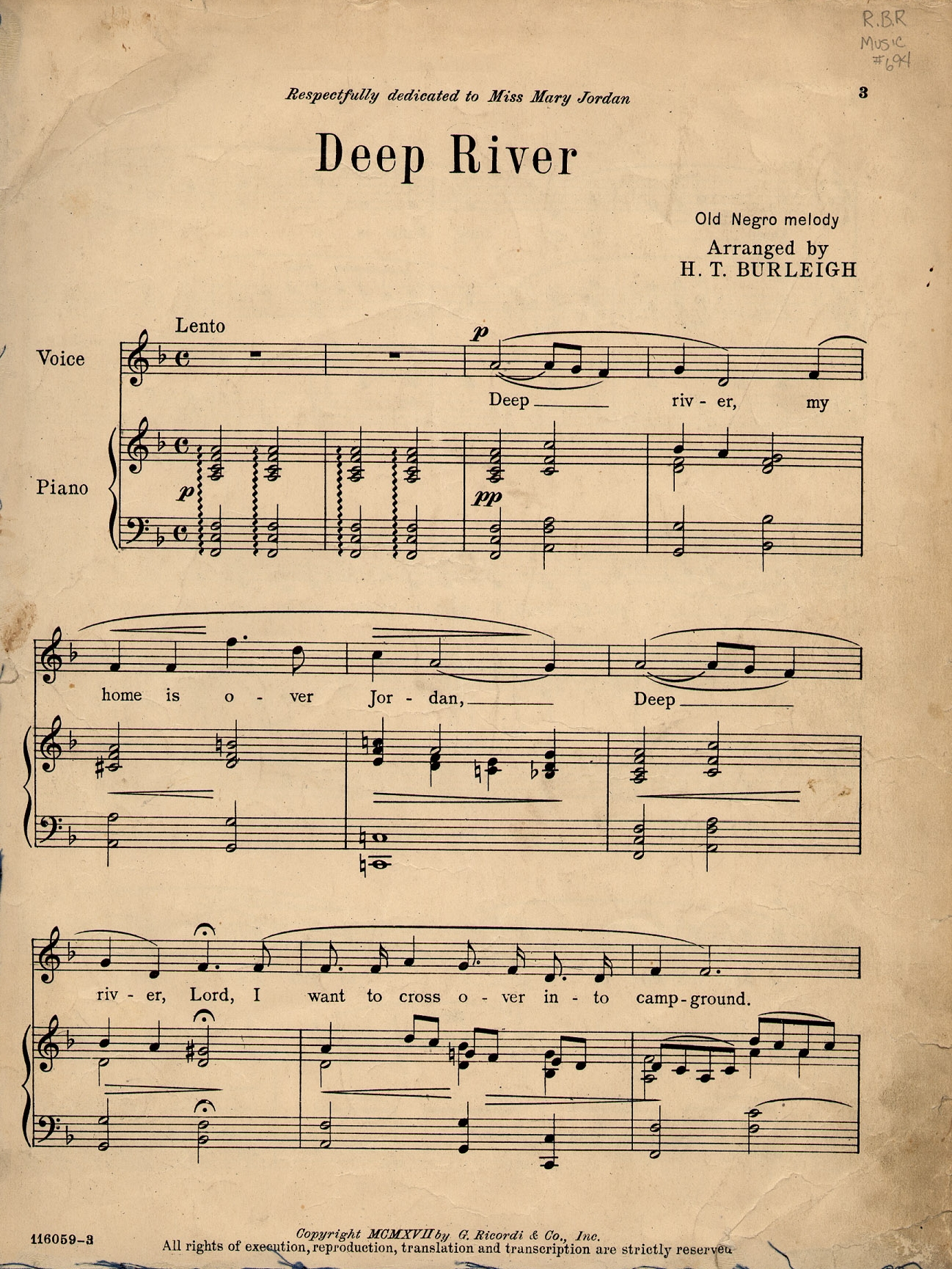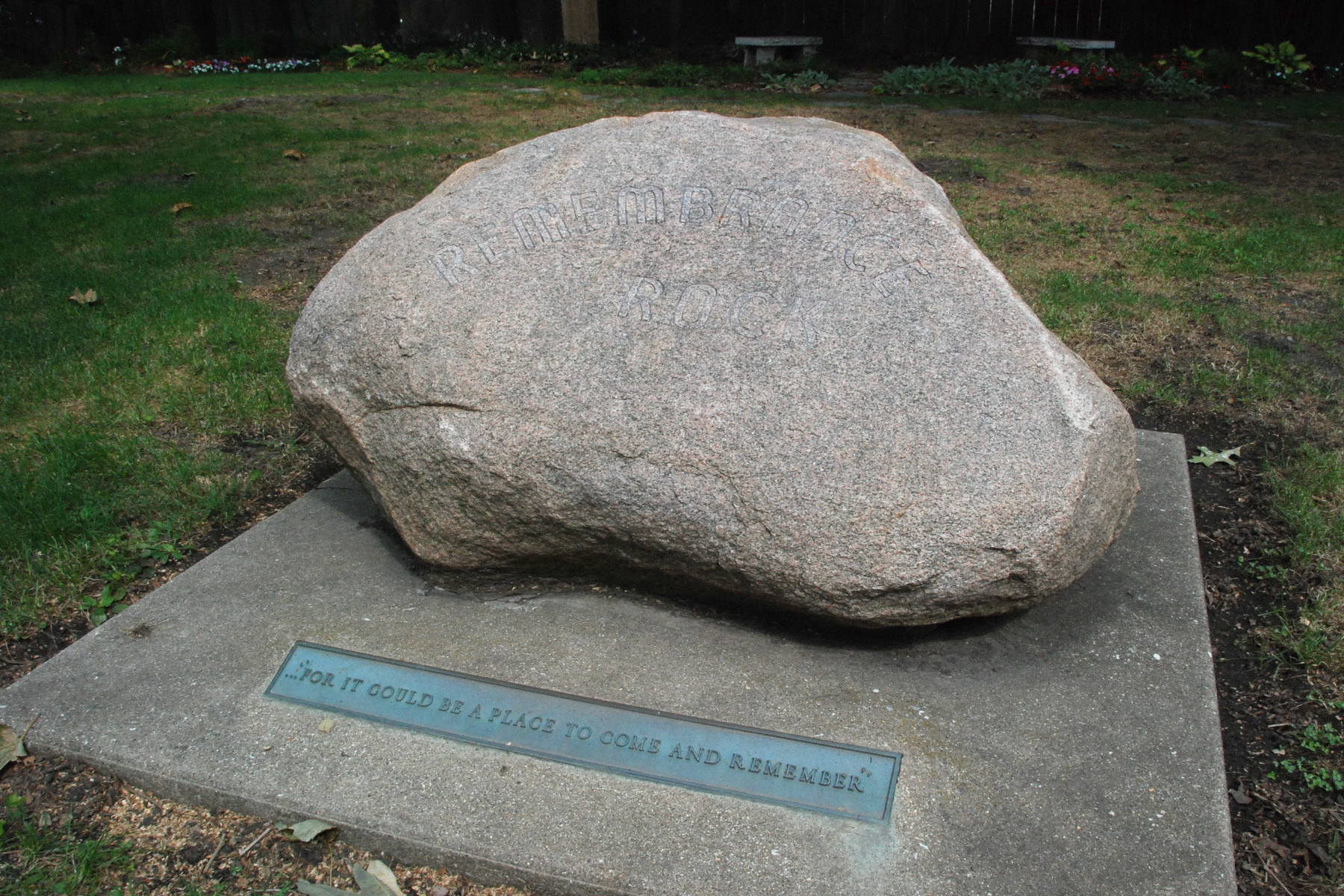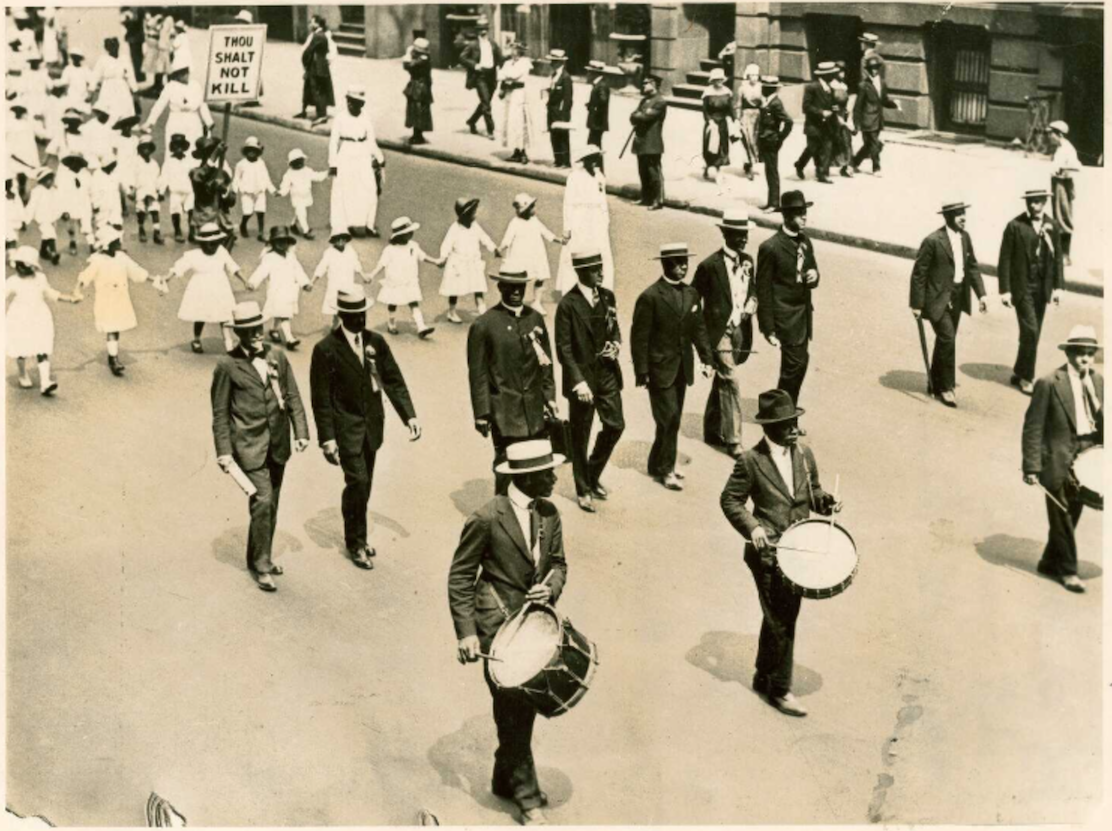|
The Negro Speaks Of Rivers
"The Negro Speaks of Rivers" is a poem by American writer Langston Hughes. Hughes wrote the poem when he was 17 and crossing the Mississippi River on the way to visit his father in Mexico. It was first published the following year in ''The Crisis'', starting Hughes's literary career. "The Negro Speaks of Rivers" uses rivers as a metaphor for Hughes's life and the broader African-American experience. It has been reprinted often and is considered one of Hughes's most famous and signature works. Background Langston Hughes was born in 1902, in Missouri. He attended high school in Cleveland, Ohio, where he first began writing. He graduated from Central High School in 1917. Several years after graduating high school, Hughes decided to travel to Mexico City and live with his father, whom he did not know well. He left in 1920.Socarides, Alexandra (August 1, 2013).The Poems (We Think) We Know: 'The Negro Speaks of Rivers' by Langston Hughes. ''Los Angeles Review of Books''. Retrieved A ... [...More Info...] [...Related Items...] OR: [Wikipedia] [Google] [Baidu] |
Langston Hughes
James Mercer Langston Hughes (February 1, 1901 ŌĆō May 22, 1967) was an American poet, social activist, novelist, playwright, and columnist from Joplin, Missouri. One of the earliest innovators of the literary art form called jazz poetry, Hughes is best known as a leader of the Harlem Renaissance. He famously wrote about the period that "the Negro was in vogue", which was later paraphrased as "when Harlem was in vogue." Growing up in a series of Midwestern towns, Hughes became a prolific writer at an early age. He moved to New York City as a young man, where he made his career. He graduated from high school in Cleveland, Ohio, and soon began studies at Columbia University in New York City. Although he dropped out, he gained notice from New York publishers, first in ''The Crisis'' magazine and then from book publishers, and became known in the creative community in Harlem. He eventually graduated from Lincoln University. In addition to poetry, Hughes wrote plays and short sto ... [...More Info...] [...Related Items...] OR: [Wikipedia] [Google] [Baidu] |
The Souls Of Black Folk
''The Souls of Black Folk: Essays and Sketches'' is a 1903 work of American literature by W. E. B. Du Bois. It is a seminal work in the history of sociology and a cornerstone of African-American literature. The book contains several essays on race, some of which had been published earlier in ''The Atlantic Monthly''. To develop this work, Du Bois drew from his own experiences as an African American in American society. Outside of its notable relevance in African-American history, ''The Souls of Black Folk'' also holds an important place in social science as one of the early works in the field of sociology. In ''The Souls of Black Folk'', Du Bois used the term "double consciousness", perhaps taken from Ralph Waldo Emerson ("The Transcendentalist" and "Fate"), applying it to the idea that black people must have two fields of vision at all times. They must be conscious of how they view themselves, as well as being conscious of how the world views them. Chapters Each chapter in ''T ... [...More Info...] [...Related Items...] OR: [Wikipedia] [Google] [Baidu] |
Walt Whitman
Walter Whitman (; May 31, 1819 ŌĆō March 26, 1892) was an American poet, essayist and journalist. A humanist, he was a part of the transition between transcendentalism and realism, incorporating both views in his works. Whitman is among the most influential poets in the American canon, often called the father of free verse. His work was controversial in his time, particularly his 1855 poetry collection ''Leaves of Grass'', which was described as obscene for its overt sensuality. Born in Huntington on Long Island, Whitman resided in Brooklyn as a child and through much of his career. At the age of 11, he left formal schooling to go to work. Later, Whitman worked as a journalist, a teacher, and a government clerk. Whitman's major poetry collection, ''Leaves of Grass'', was first published in 1855 with his own money and became well known. The work was an attempt at reaching out to the common person with an American epic. He continued expanding and revising it until his de ... [...More Info...] [...Related Items...] OR: [Wikipedia] [Google] [Baidu] |
Deep River (song)
"Deep River" is an anonymous African-American spiritual, popularized by Henry Burleigh in his 1916 collection ''Jubilee Songs of the USA''. Overview The song was first mentioned in print in 1867, when it was published in the first edition of ''The Story of the Jubilee Singers: With Their Songs'', by J. B. T. Marsh (page 230). By 1917, when Harry Burleigh completed the last of his several influential arrangements, the song had become very popular in recitals. It has been called "perhaps the best known and best-loved spiritual". Lyrics Deep river, my home is over Jordan. Deep river, Lord, I want to cross over into campground. Oh, don't you want to go to that Gospel-feast? That Promised Land, where all is peace? Adaptations The melody was adopted in 1921 for the song ''Dear Old Southland'' by Henry Creamer and Turner Layton, which enjoyed popular success the next year in versions by Paul Whiteman and by Vernon Dalhart. "Deep River" has been sung in several films. The 1929 film ' ... [...More Info...] [...Related Items...] OR: [Wikipedia] [Google] [Baidu] |
Spirituals
Spirituals (also known as Negro spirituals, African American spirituals, Black spirituals, or spiritual music) is a genre of Christian music that is associated with Black Americans, which merged sub-Saharan African cultural heritage with the experiences of being held in bondage in slavery, at first during the transatlantic slave trade and for centuries afterwards, through the domestic slave trade. Spirituals encompass the "sing songs," work songs, and plantation songs that evolved into the blues and gospel songs in church. In the nineteenth century, the word "spirituals" referred to all these subcategories of folk songs. While they were often rooted in biblical stories, they also described the extreme hardships endured by African Americans who were enslaved from the 17th century until the 1860s, the emancipation altering mainly the nature (but not continuation) of slavery for many. Many new derivative music genres emerged from the spirituals songcraft. Prior to the end of the U ... [...More Info...] [...Related Items...] OR: [Wikipedia] [Google] [Baidu] |
Vachel Lindsay
Nicholas Vachel Lindsay (; November 10, 1879 ŌĆō December 5, 1931) was an American poet. He is considered a founder of modern ''singing poetry,'' as he referred to it, in which verses are meant to be sung or chanted. Early years Lindsay was born in Springfield, Illinois where his father, Vachel Thomas Lindsay, worked as a medical doctor and had amassed considerable financial resources. The Lindsays lived across the street from the Illinois Executive Mansion, home of the Governor of Illinois. The location of his childhood home influenced Lindsay, and one of his poems, " The Eagle Forgotten", eulogizes Illinois governor John P. Altgeld, whom Lindsay admired for his courage in pardoning the anarchists involved in the Haymarket Affair, despite the strong protests of US President Grover Cleveland. Growing up in Springfield influenced Lindsay in other ways, as evidenced in such poems as "On the Building of Springfield" and culminating in poems praising Springfield's most famous resid ... [...More Info...] [...Related Items...] OR: [Wikipedia] [Google] [Baidu] |
Rachel Blau DuPlessis
Rachel Blau DuPlessis (born December 14, 1941) is an American poet and essayist, known as a feminist critic and scholar with a special interest in modernist and contemporary poetry. Her work has been widely anthologized. Early life DuPlessis was born in Brooklyn, New York in 1941 to Joseph L. and Eleanor Blau; her father was a professor, and her mother was a librarian. She received her BA from Barnard College in 1963, and her MA and PhD from Columbia University in 1964 and 1970 respectively. Her dissertation project was titled ''The Endless Poem: Paterson of William Carlos Williams and The Pisan Cantos of Ezra Pound''.for more info see: Paterson ; William Carlos Williams ; The Pisan Cantos ; & Ezra Pound Career Teaching DuPlessis taught literature and creative writing at Temple University in Philadelphia, Pennsylvania, from 1974 to 2011; she has been professor emerita since 2011. In 2012, she was a Distinguished Visitor at University of Auckland. DuPlessis has also taugh ... [...More Info...] [...Related Items...] OR: [Wikipedia] [Google] [Baidu] |
Carl Sandburg
Carl August Sandburg (January 6, 1878 – July 22, 1967) was an American poet, biographer, journalist, and editor. He won three Pulitzer Prizes: two for his poetry and one for his biography of Abraham Lincoln. During his lifetime, Sandburg was widely regarded as "a major figure in contemporary literature", especially for volumes of his collected verse, including '' Chicago Poems'' (1916), ''Cornhuskers'' (1918), and ''Smoke and Steel'' (1920). He enjoyed "unrivaled appeal as a poet in his day, perhaps because the breadth of his experiences connected him with so many strands of American life". When he died in 1967, President Lyndon B. Johnson observed that "Carl Sandburg was more than the voice of America, more than the poet of its strength and genius. He was America." Life Carl Sandburg was born in a three-room cottage at 313 East Third Street in Galesburg, Illinois, to Clara Mathilda (n├®e Anderson) and August Sandberg, Sandburg's father's last name was originally "Danielso ... [...More Info...] [...Related Items...] OR: [Wikipedia] [Google] [Baidu] |
Present Tense
The present tense (abbreviated or ) is a grammatical tense whose principal function is to locate a situation or event in the present time. The present tense is used for actions which are happening now. In order to explain and understand present tense, it is useful to imagine time as a line on which the past tense, the present and the future tense are positioned. The term ''present tense'' is usually used in descriptions of specific languages to refer to a particular grammatical form or set of forms; these may have a variety of uses, not all of which will necessarily refer to present time. For example, in the English sentence "My train leaves tomorrow morning", the verb form ''leaves'' is said to be in the present tense, even though in this particular context it refers to an event in future time. Similarly, in the historical present, the present tense is used to narrate events that occurred in the past. There are two common types of present tense form in most Indo-European langua ... [...More Info...] [...Related Items...] OR: [Wikipedia] [Google] [Baidu] |
Red Summer
Red Summer was a period in mid-1919 during which Terrorism in the United States#White nationalism and white supremacy, white supremacist terrorism and Mass racial violence in the United States, racial riots occurred in more than three dozen cities across the United States, and in one rural county in Arkansas. The term "Red Summer" was coined by Civil rights movement, civil rights activist and author James Weldon Johnson, who had been employed as a field secretary by the National Association for the Advancement of Colored People (NAACP) since 1916. In 1919, he organized Nonviolent resistance, peaceful protests against the racial violence.Erickson, Alana J. 1960. "Red Summer." Pp. 2293ŌĆō94 in ''Encyclopedia of African-American Culture and History''. New York: Macmillan Publishers, Macmillan.Cunningham, George P. 1960. "James Weldon Johnson." Pp. 1459ŌĆō61 in ''Encyclopedia of African-American Culture and History''. New York: Macmillan Publishers, Macmillan. In most instances, ... [...More Info...] [...Related Items...] OR: [Wikipedia] [Google] [Baidu] |
Anti-lynching Movement
The anti-lynching movement was an organized political movement in the United States that aimed to eradicate the practice of lynching. Lynching was used as a tool to repress African Americans. The anti-lynching movement reached its height between the 1890s and 1930s. The first recorded lynching in the United States was in 1835 in St. Louis, when an accused killer of a deputy sheriff was captured while being taken to jail. The black man named Macintosh was chained to a tree and burned to death. The movement was composed mainly of African Americans who tried to persuade politicians to put an end to the practice, but after the failure of this strategy, they pushed for anti-lynching legislation. African-American women helped in the formation of the movement, and a large part of the movement was composed of women's organizations. The first anti-lynching movement was characterized by black conventions, which were organized in the immediate aftermath of individual incidents. The movement g ... [...More Info...] [...Related Items...] OR: [Wikipedia] [Google] [Baidu] |
Per Aspera Ad Astra
''Ad astra'' is a Latin language, Latin phrase meaning "to the stars". The phrase has origins with Virgil, who wrote in his ''Aeneid'': "''sic itur ad astra''" ('thus one journeys to the stars') and "''opta ardua pennis astra sequi''" ('desire to pursue the high[/hard to reach] stars on wings'). Another origin is Seneca the Younger, who wrote in ''Hercules (Seneca), Hercules'': "''non est ad astra mollis e terris via''" ('there is no easy way from the earth to the stars'). Etymology ''Ad'' is a Latin preposition expressing direction toward in space or time (e.g. ''ad nauseam'', ''ad infinitum'', ''ad hoc'', ''Ad libitum, ad libidem'', ''Ad valorem tax, ad valorem'', ''ad hominem''). It is also used as a prefix in Latin word formation. ''Astra'' is the Accusative case, accusative plural form of the Latin word ''astrum'' 'star' (from Ancient Greek ß╝äŽāŽäŽü╬┐╬Į ''astron'' 'star', from Proto-Indo-European language, Proto-Indo-European wikt:Reconstruction:Proto-Indo-European/hŌé ... [...More Info...] [...Related Items...] OR: [Wikipedia] [Google] [Baidu] |








